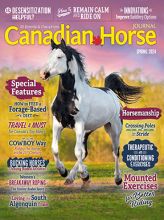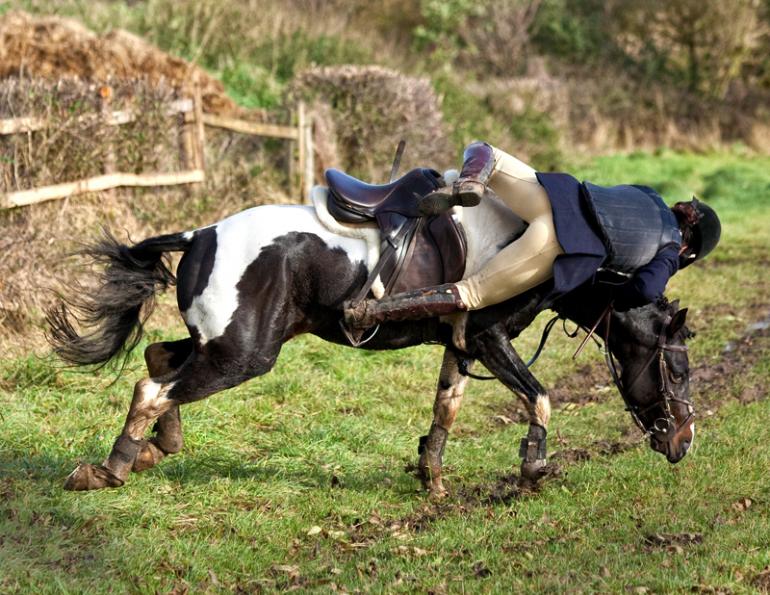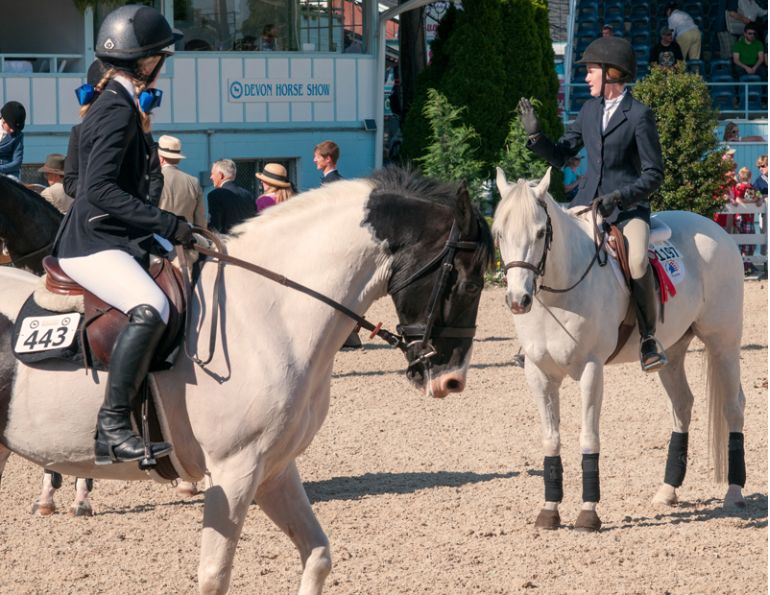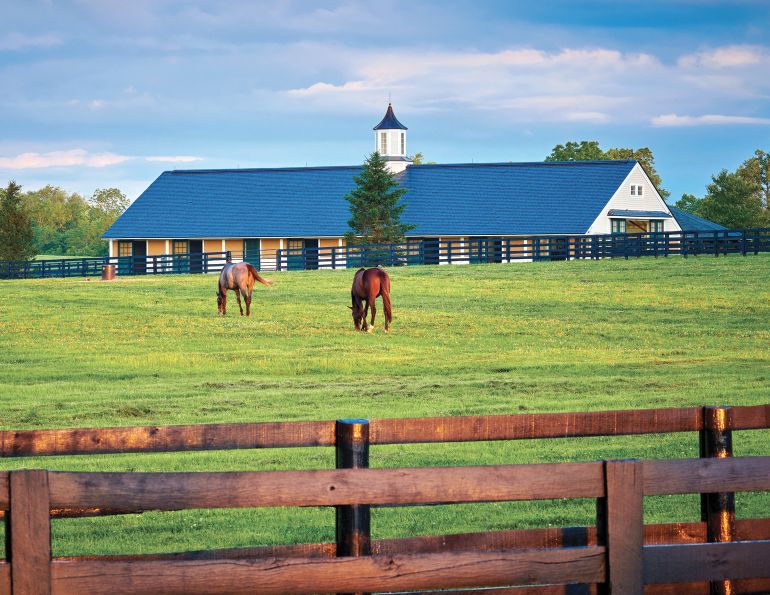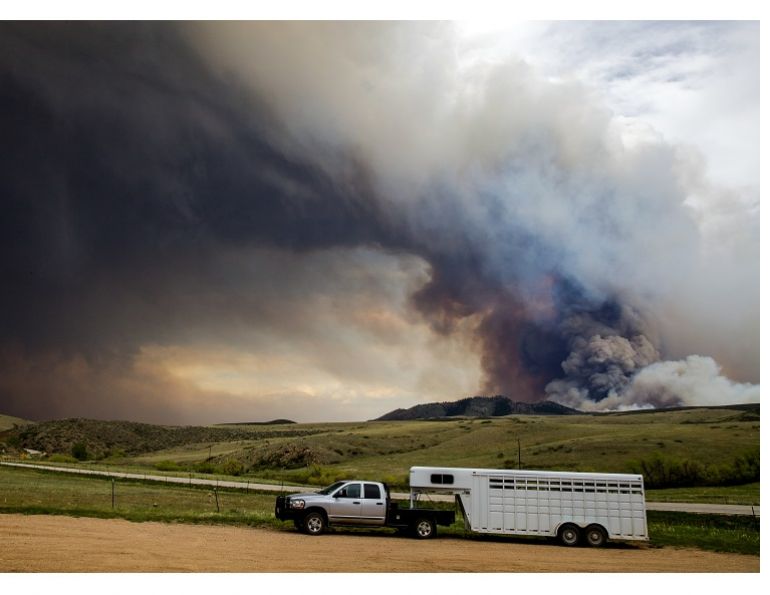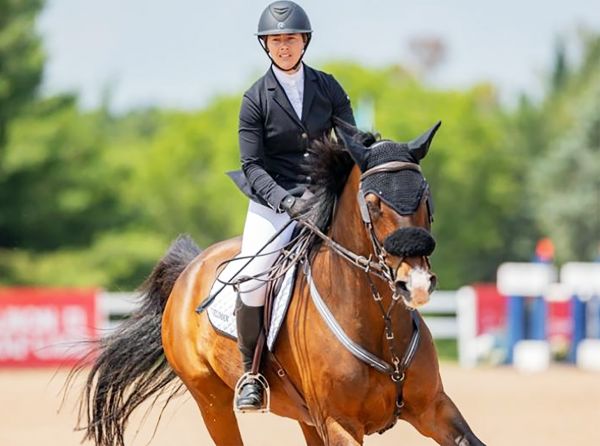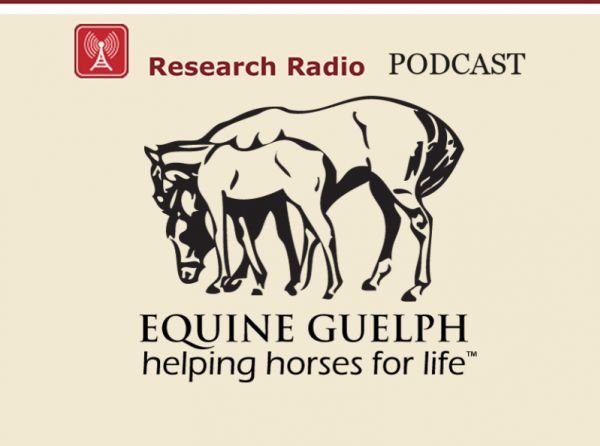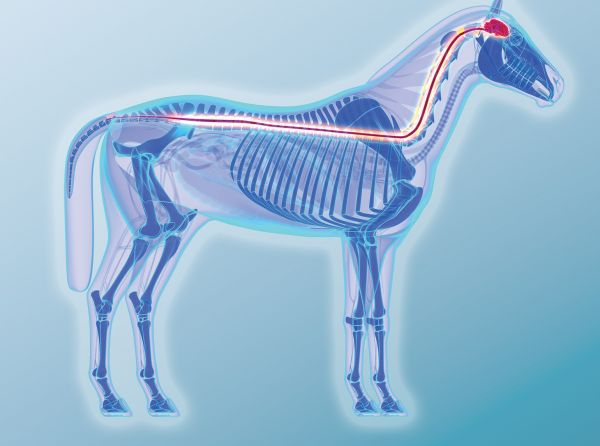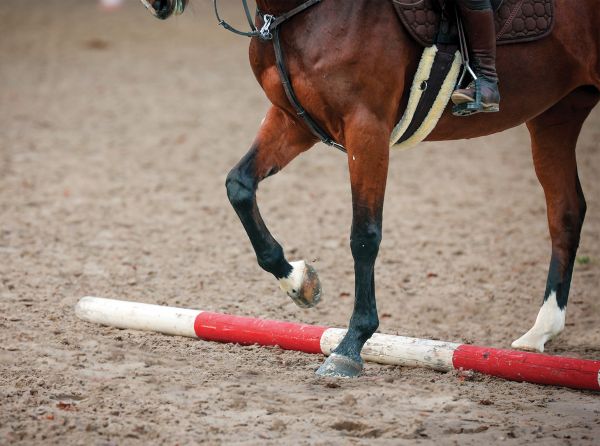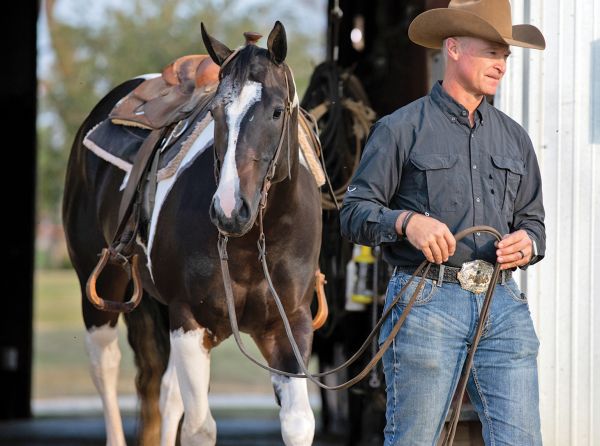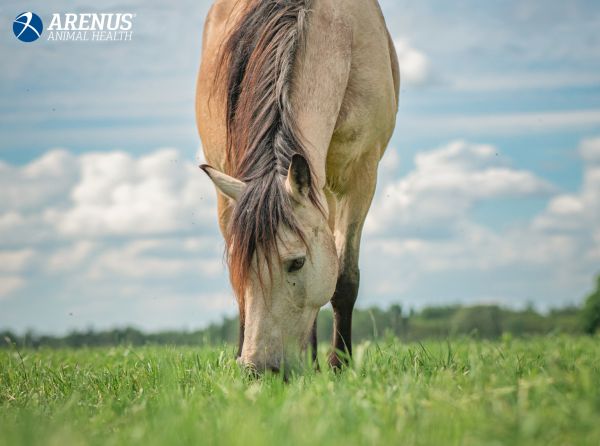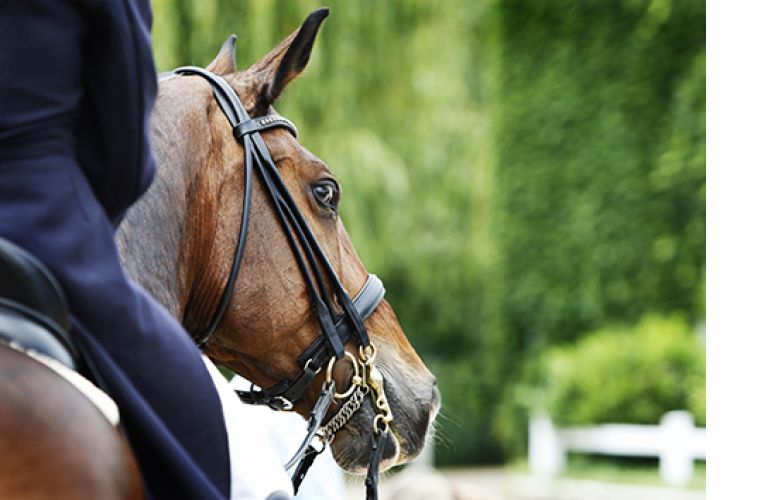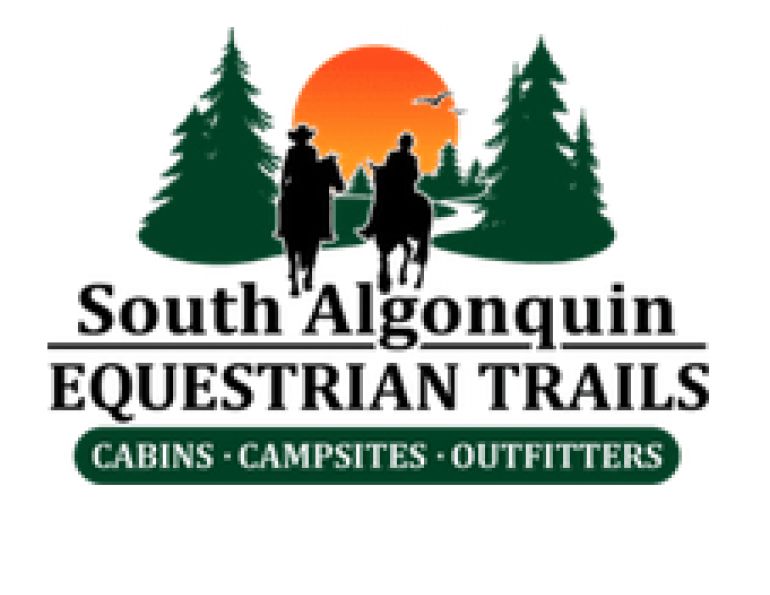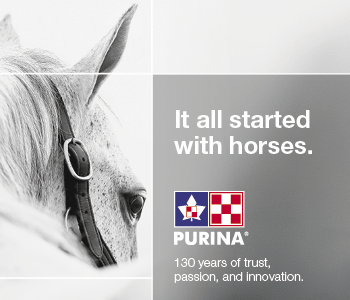By Karen L. Weslowski, LL.B., Litigation Lawyer
No matter how careful one is around horses, accidents happen. In the event of an accident involving horses, the occupier of the property on which the accident occurred may be liable for any injuries or damage caused. This article will consider the potential legal liability arising from owning or occupying land and discuss how best to minimize the risks associated with horse related activities occurring on that land. A horse owner may be liable for any injuries or damage caused when their horse gets loose. This article will also discuss the potential legal liability arising from that situation. In some cases, a claim for property damage or personal injury occurring as a result of a horse related accident may be covered by a homeowner’s insurance policy. This article will also consider when a homeowner’s insurance policy will apply and when extra insurance may be available or necessary.
I. What are your legal liabilities when an accident occurs on your property?
The law places a special obligation on occupiers of property to make the property safe for people invited onto the property. “Occupiers liability legislation” imposes a duty of care upon an occupier of premises to ensure that all people entering the premises will be reasonably safe in using the premises. This legislation can impose a duty of care upon an occupier of premises with respect to: (1) the condition of the premises; (2) the activities on the premises; and (3) the conduct of third parties on the premises. Individuals who allow other people to use their property for horse related activities, whether such activities are part of a business or merely consist of allowing a friend to use their riding ring for free, should be fully aware of the occupiers liability legislation in their province of residence.
A person making a claim pursuant to occupiers liability legislation must generally prove the following:
1. The defendant was an occupier of the premises where and when the incident occurred;
2. The defendant breached the occupier’s duty of care owed to the plaintiff; and
3. The defendant’s breach of duty resulted in damage to the plaintiff’s person or property.
An “occupier” is generally a person in physical possession of premises or a person who has responsibility for, and control over, the condition of the premises, the activities conducted on those premises and the persons allowed to enter those premises. A person does not need to own the property on which the accident occurred to be an occupier.

Occupiers of property have a legal obligation to make the property safe for people invited onto it. To avoid liability under occupiers liability legislation, conduct regular inspections of your property to find hazardous conditions so they can be fixed. If the hazard cannot be removed a warning sign should be posted. Photo: Canstock/Elenathewise.
An occupier will have breached the duty of care owed to a person and will be liable for injury, loss or damage suffered on the premises where it was reasonably foreseeable that the person could be injured by a hazard of which the occupier had real or constructive knowledge and where the occupier took no steps to stop or lessen the hazard. For instance, if a riding ring is not enclosed by a fence and secure gate, it may be reasonably foreseeable that a person riding a horse in the ring could be injured if the horse was to bolt. Similarly, it may be reasonably foreseeable that the following scenario could cause injury to a rider: You have been doing some work on your fences and leave a large strand of wire wound up behind a bush on your property, which you forget to remove. While someone is riding, their horse spooks and the horse’s legs get caught in the wire, causing the rider to fall off and suffer an injury. Occupiers liability legislation also extends to activities conducted on premises, so, for instance, an occupiers liability claim could also likely be made if, while riding on your premises, an inexperienced rider suffered injuries after falling off a green horse.
An occupier will generally not be liable for injury, loss or damage caused by natural hazards. For instance, if a person is trail riding and strikes their head on a tree branch, the occupier of the premises will not likely be liable for any injury that results.
As it can be difficult to find suitable riding areas, a large landowner may find that riders are accessing their property for trail rides. These landowners may have concerns about the liability that attaches to them for any accidents that occur on their land. In British Columbia, for example, this concern has been addressed by an exception in the Occupiers Liability Act for “rural premises”. In British Columbia, a person who enters vacant or undeveloped rural premises for recreational purposes is deemed to have willingly assumed all risks. The purpose of this exception is to encourage landowners in rural areas to allow their land to be used for recreational purposes. In order for this exception to apply, landowners must not require payment or other consideration from individuals for the use of their land. This exception recognizes that the normal duty of care set out in the British Columbia Occupiers Liability Act might be onerous in a rural setting where owners may have limited practical ability to control access to their land and where the cost of continuous monitoring of land to ensure that it is reasonably safe for all those who enter it may be high. “Rural premises” include land used by the occupier primarily for agricultural purposes, land used for forestry or range purposes, vacant or undeveloped land and forested or wilderness land.
The best way for horse owners to avoid liability under occupiers liability legislation is for those individuals who qualify as “occupiers” to conduct regular inspections of their property in order to determine the existence of hazardous conditions so they can be fixed. If the hazard cannot be eliminated, a sign should be posted warning people of it. Even if you think the danger is obvious do not assume that others will think the same. Take the extra step of posting a warning sign — it may be a simple and inexpensive means of avoiding trouble in the future.
II. What are your legal liabilities if your horse gets loose and causes damage, injury or loss?
In British Columbia, the Livestock Act makes a livestock owner legally liable for damage caused by their livestock, including horses, while “at large.” An “owner” is defined broadly and includes “any person who has a property interest in an animal and includes the person’s agent.” The term “at large” includes livestock that is not “in the direct or continuous charge of a person”, “confined in a structure” or “on enclosed land owned or occupied by the owner of the livestock.” If a horse is “at large” and causes damage, the horse owner can only avoid legal liability if they can show that the horse was at large as a result of an act or omission of a person over whom the owner had no control or that the owner took reasonable care to ensure the horse could not escape. Other Canadian provinces also have legislation which deals with the liability of an owner for escaped livestock.
In order to avoid liability under the Livestock Act, or another similar statute, horse owners should make sure that their horses cannot escape by ensuring their fencing is always in good repair and subject to regular inspections. Extra care should be taken if the fence is next to a highway.
Care must always be taken to ensure that gates are properly closed and secured.

A livestock owner can be held liable for the damage or injury caused by escaped animals. Take care to ensure that your horses cannot escape by inspecting fences regularly and keeping them in good repair. Gates should always be closed and secured. Photo: Canstock/Virgonira
The following case illustrates the danger of failing to install secure gates. A British Columbia driver sued for damages incurred when her car collided with three horses at large on a poorly lit roadway. The driver was seriously injured and all three horses were killed. The driver sued the owners of the horses, the owners of the land from which the horses escaped, the companies which leased the land and the resident of the land. The evidence showed that none of the defendants ever carried out a regular or thorough check of the fences and gates of the property. On the night of the accident, the driveway gate, which was secured by a hook and eye latch, was forced open by the horses. The Court dismissed the driver’s claim against the land owners on the basis that the land owners were not responsible for gate repair because the tenant of the property had assumed the responsibility of fixing fences and gates on the property. The Court dismissed the driver’s claim against the horse owners on the basis that the horse owners did not breach the Livestock Act because they abided by the rule to keep the driveway gate closed and knew that if their horses ever got as far as the driveway, the gate would contain them. The horse owners, who visited their horses only once a week, reasonably expected that the tenant of the property, with whom the horses were boarded, would obey the rule about closing the gate and would monitor the horses. The Court allowed the claim against the tenant and resident of the property. The Court found that the tenant was the “agent” of the owners and that, as such, he was also an owner pursuant to the Livestock Act. Because the tenant did not check the gate or reinforce it to ensure it did not accidentally open, the Court found that the tenant did not take reasonable care to ensure that the horses did not escape from the property. The plaintiff suffered a severe head injury in the accident and the Court awarded damages in excess of $350,000.
This case illustrates that, in certain circumstances, individuals who board horses, and not necessarily the horse owner or the property owner, may be liable for injury, loss or damage caused by a horse when the horse escapes. As such, it is very important that individuals who board horses ensure that the fences and gates are in good repair and that all reasonable measures are taken to ensure that a horse cannot escape from the property.
Horse owners in British Columbia may also be liable under the Livestock Act for injury, loss or damage caused if they lose control of their horse while riding off their property, as illustrated by the following case. The British Columbia Supreme Court held a horse owner liable for the damages caused by her horse after he collided with a car. The horse owner had been riding her horse along a road at dusk when he began to shy at some blue recycling bins. The owner dismounted and began to lead the horse along the road. While she was leading him the horse reared and the owner lost control of the horse, which then galloped away and collided with a car. The occupants of the car suffered personal injuries and sued the horse owner. The Court considered the provisions of the Livestock Act and found that the horse was “at large” and that he caused damage while at large. The Court then considered whether the owner took reasonable care to ensure the horse was not capable of escaping. The Court found that she did not and held her liable for the plaintiffs’ damages in excess of $27,000. The Court found that the normal position of control was on the horse’s back and that it was not reasonable for the owner to dismount to lead the horse. As well, the accident occurred at dusk and although the owner was wearing reflective material which allowed drivers to see the horse while she was mounted, once she dismounted, drivers had no way of seeing the horse in the dark. Another factor which added to the Court’s finding that the owner did not take reasonable care was the fact that she had a previous hand injury which weakened her grip. In these circumstances, it was not reasonable for her to dismount and lead her horse.
III. Will your homeowner’s insurance cover the losses?
In the event that a horse owner is involved in a horse related accident and is sued for damages as a result, a homeowner’s insurance policy may provide insurance coverage, provided the horse related activity which caused the accident was personal and not business related. A homeowner’s insurance policy will not generally provide coverage for horse related accidents which occur in the context of business activities as they usually contain the following coverage exclusion (or some such similarly worded provision), which includes activities such as providing riding lessons or trail rides for a fee:
You are not insured for: Bodily injury arising out of the ownership, maintenance, operation, use, entrustment to others, loading or unloading of any draft or saddle animal or attached conveyance used therewith while being used or lent to others for a charge.
Many horse owners who are not full time trainers give riding lessons on their property as a means of making a bit of extra money. It is very important for these people to understand that their homeowners insurance will not likely cover them for any injuries suffered by their students unless their insurer agrees to accept the risk by special endorsement. It is critical that homeowners make sure their insurance brokers have a clear understanding of the activities on the property for which coverage might be needed.
IV. Other insurance
In most provinces, personal liability insurance coverage is available through membership in the provincial equestrian association. Individuals should check with their provincial equestrian association to get complete details on specific insurance programs and coverage. People who offer coaching, training or shipping services may need additional insurance and should consult with their insurance broker to confirm that adequate insurance coverage is in place.
This article is provided as an information service only and is not meant as legal advice. Readers are cautioned not to act on the information provided without seeking specific legal advice with respect to their unique circumstances and the applicable law in their province of residence.
Main Photo: Shutterstock/Leila Ablyazova


